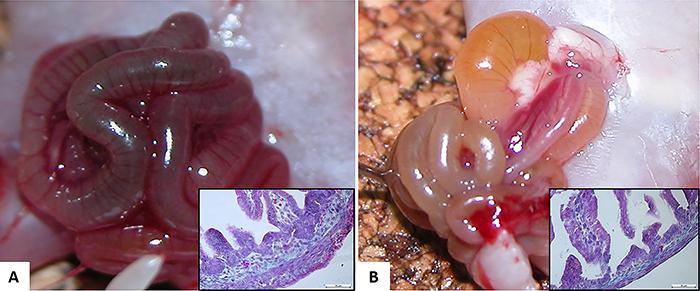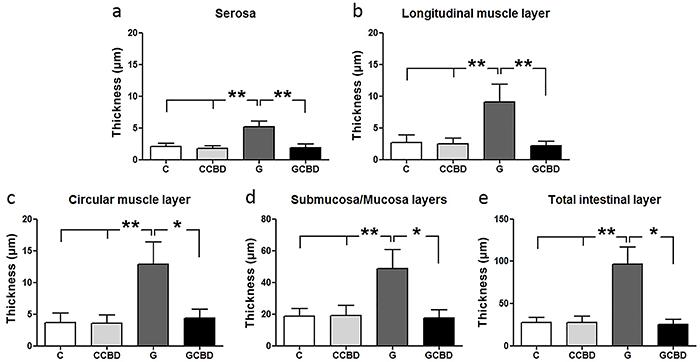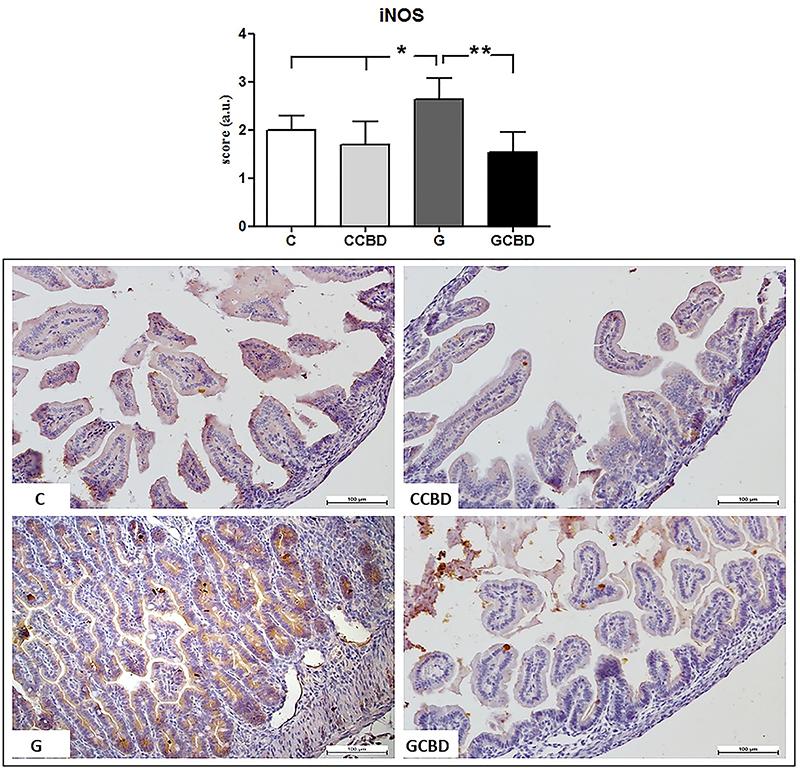Gastroschisis (GS) is an abdominal wall defect that results in histological and morphological changes leading to intestinal motility perturbation and impaired absorption of nutrients. Due to its anti-inflammatory, antioxidant, and neuroprotective effects, cannabidiol (CBD) has been used as a therapeutic agent in many diseases. Our aim was to test the effect of maternal CBD in the intestine of an experimental model of GS. Pregnant rats were treated over 3 days with CBD (30 mg/kg) after the surgical induction of GS (day 18.5 of gestation) and compared to controls. Fetuses were divided into 4 groups: 1) control (C); 2) C+CBD (CCBD); 3) gastroschisis (G), and 4) G+CBD (GCBD). On day 21.5 of gestation, the fetuses were harvested and evaluated for: a) body weight (BW), intestinal weight (IW), and IW/BW ratio; b) histometric analysis of the intestinal wall; c) immunohistochemically analysis of inflammation (iNOS) and nitrite/nitrate level. BW: GCBD was lower than CCBD (P<0.005), IW and IW/BW ratio: GCBD was smaller than G (P<0.005), GCBD presented lower thickness in all parameters compared to G (P<0.005), iNOS and nitrite/nitrate were lower concentration in GCBD than to G (P<0.005). Maternal use of CBD had a beneficial effect on the intestinal loops of GS with decreased nitrite/nitrate and iNOS expression.
Gastroschisis; Experimental model; Prenatal treatment; Cannabidiol





